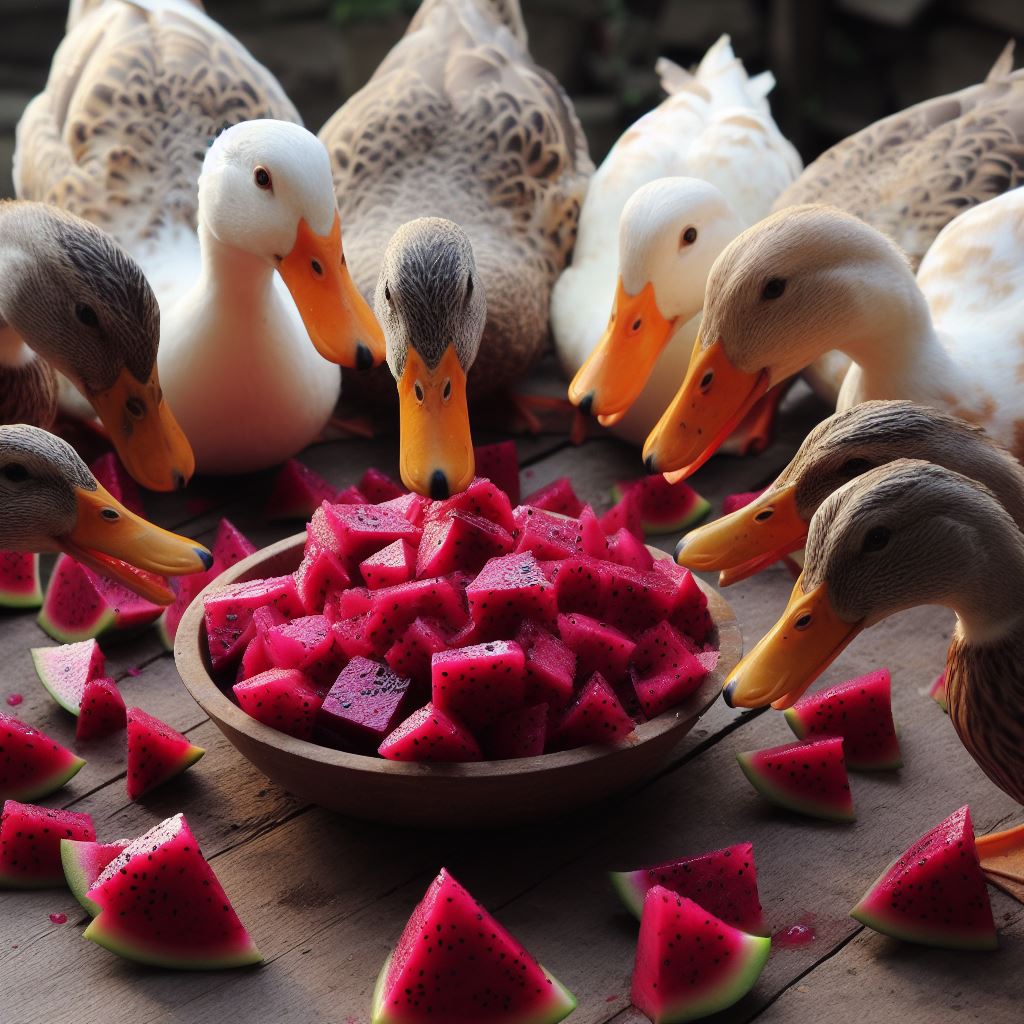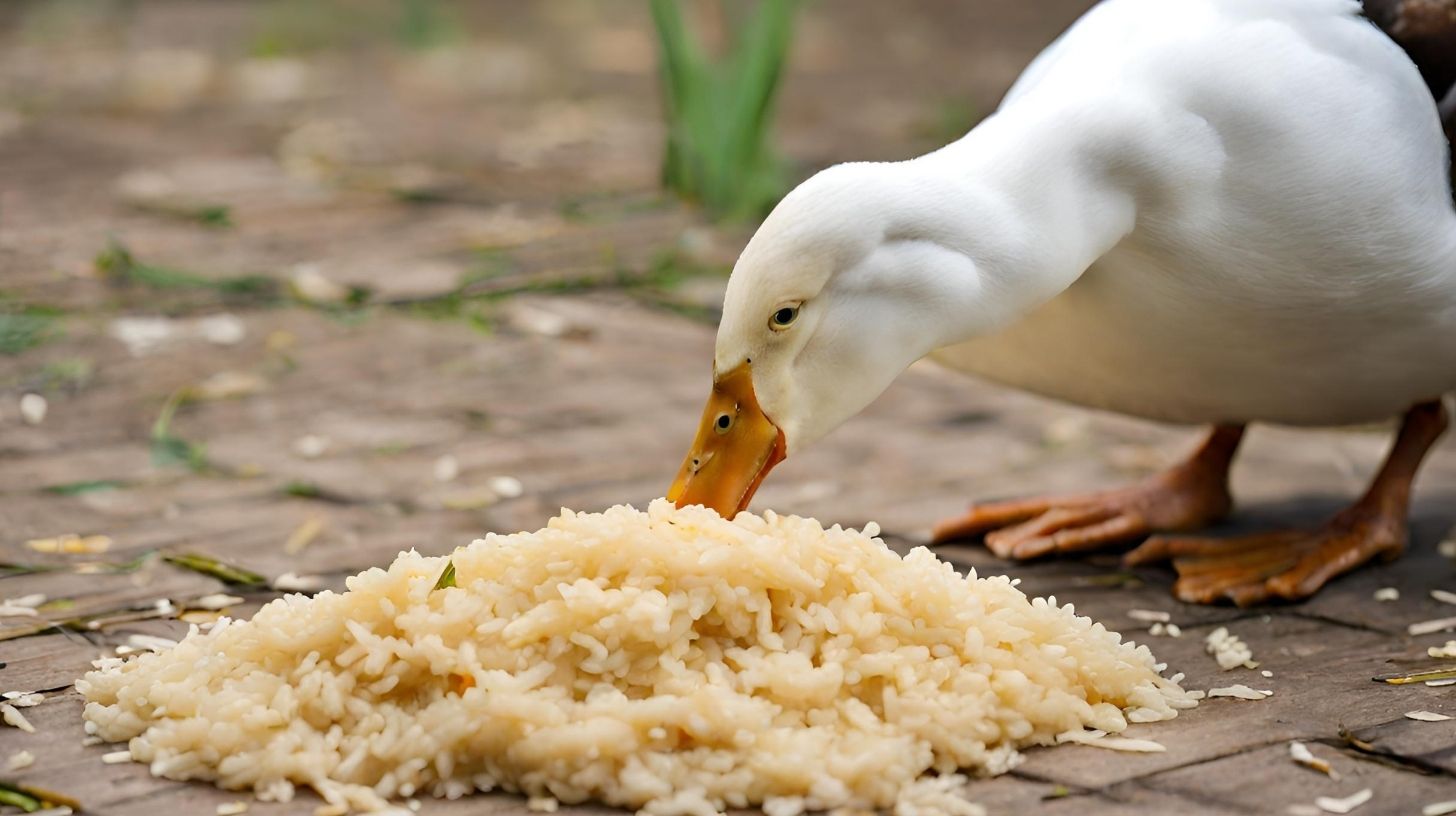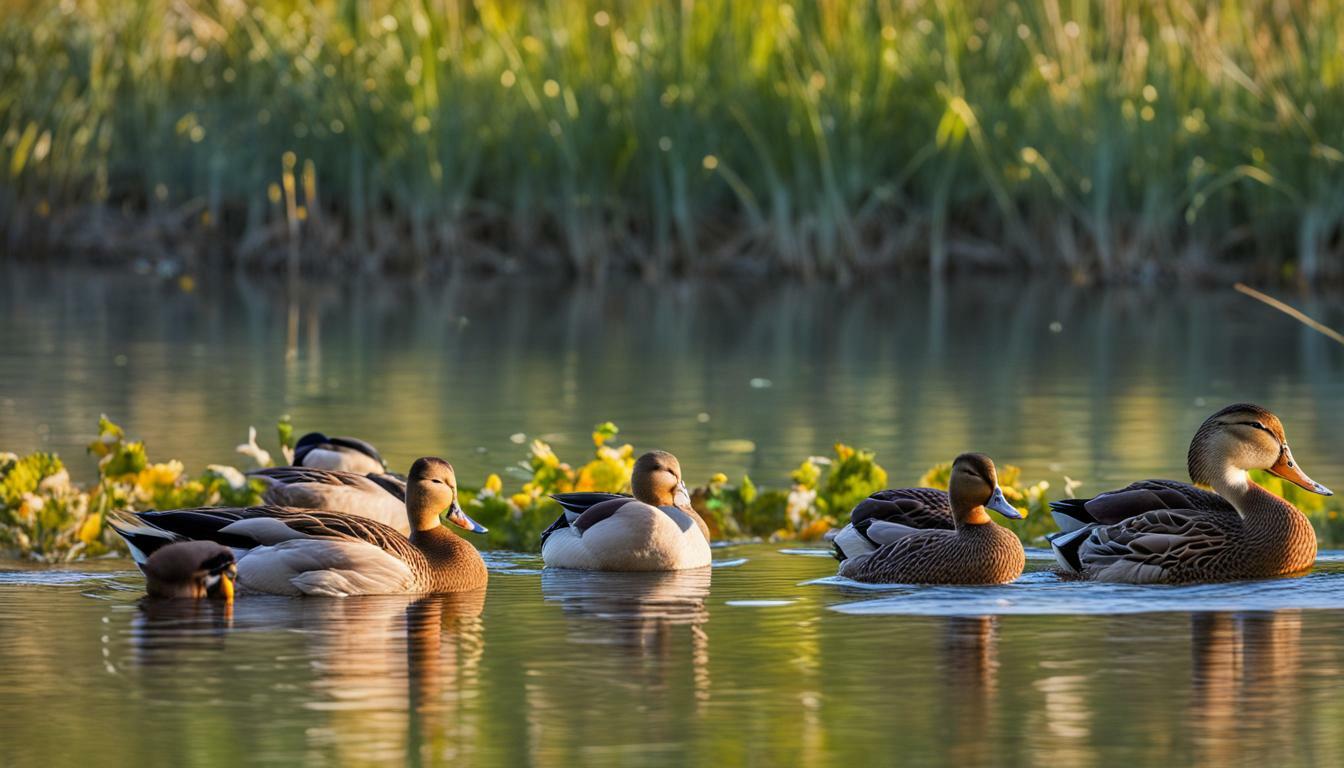Do Ducks Eat Flowers? Flowers and Plants Ducks Love to Eat

Table of content:
Ducks are a common sight around ponds and lakes where plants and flowers often grow. So it’s natural to wonder, do ducks eat flowers? The short answer is yes, ducks do eat some types of flowers, but they tend to prefer other food sources like vegetation, seeds, bugs, and small fish.
Keep reading to learn more about what flowers and plants ducks like to eat, which ones they avoid, and how to protect your garden if you have duck visitors.
Key Takeaways:
- Ducks are omnivores and will sample many types of vegetation, including some flowers. Their preferred foods are greens, seeds, and aquatic insects.
- Ducks particularly enjoy flowers like sunflowers, zinnias, roses, and marigolds. They tend to avoid daffodils, tulips, and other toxic flowers.
- The best way to protect flower gardens from duck damage is through fencing, netting, or foil pans that deter ducks from landing. Scarecrows and noisemakers may also help.
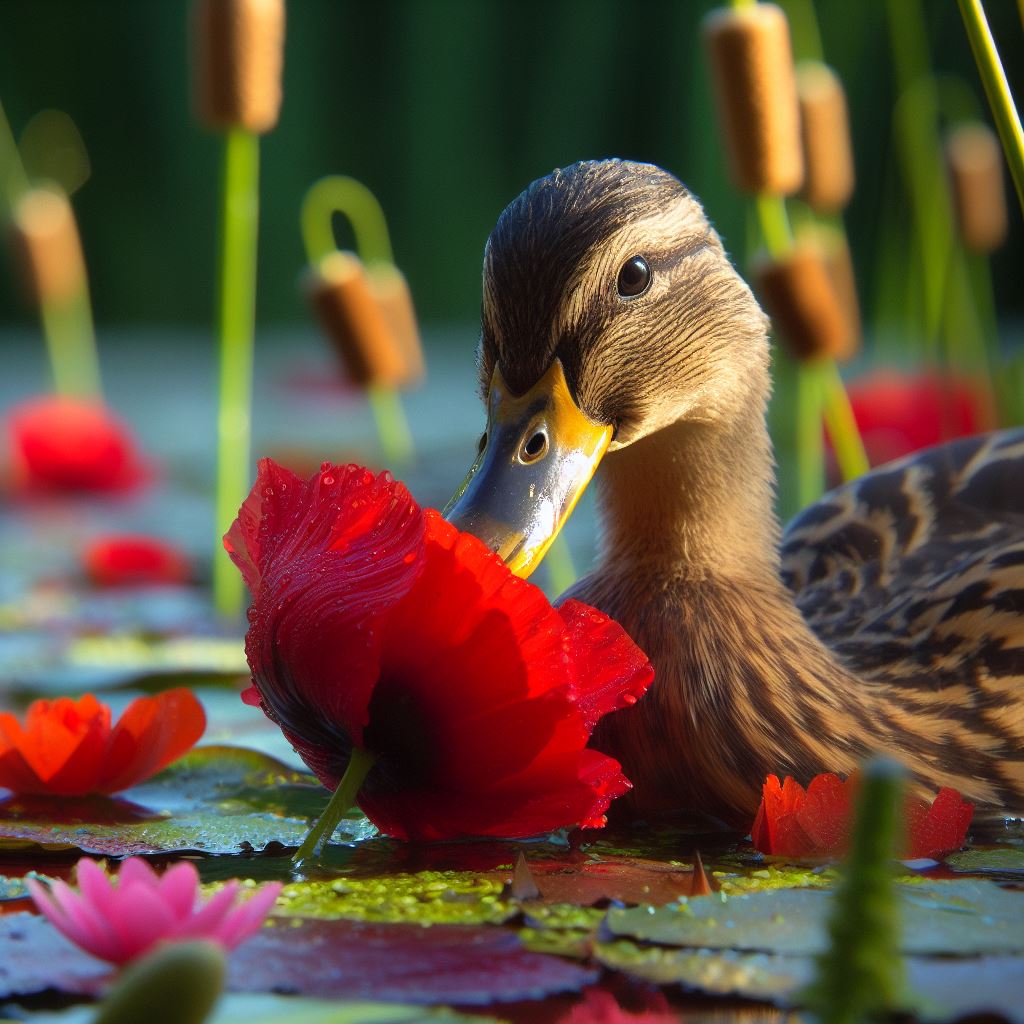 Why Do Ducks Eat Flowers?
Why Do Ducks Eat Flowers?
As omnivores, ducks aren’t picky eaters. They need a varied diet to get all the vitamins, minerals, and nutrients required for their health. Ducks will eat just about anything they can swallow, including many types of vegetation. This vegetation includes leaves, stems, seeds, roots, and even some flowers that ducks find tasty or nutritious.
Flowers that ducks eat tend to be high in protein, carbohydrate, or fat content compared to other vegetation. For example, sunflowers have a very high fat and protein content that makes them attractive to ducks. Flowers also often contain abundant pollen and nectar that ducks enjoy.
However, ducks don’t rely on flowers as their main food source. They get most of their nutrition from greens, seeds, grasses, and aquatic plants. Ducks also eat a lot of protein-rich aquatic insects, small fish, frogs, and aquatic invertebrates. Flowers are more like snacks that supplement a duck’s main diet.
What Kinds of Flowers Do Ducks Eat?
Ducks will sample many types of flowers, but they definitely have their favorites when given options. Some popular flowers that ducks are known to eat include:
- Marigolds – A favorite duck snack, especially the smaller single marigolds.
- Roses – Particularly damask roses. Ducks enjoy the flower buds and petals.
- Zinnias – Zinnias are related to sunflowers and ducks devour the buds.
- Chrysanthemums – Both spray and standard mums get nibbled by ducks.
- Sunflowers – A duck favorite for their high fat and protein content.
Ducks also sometimes eat violas, snapdragons, dahlias, lavender, geraniums, and other ornamental flowers. Basically, ducks will sample any flower that looks tasty to them and isn’t toxic.
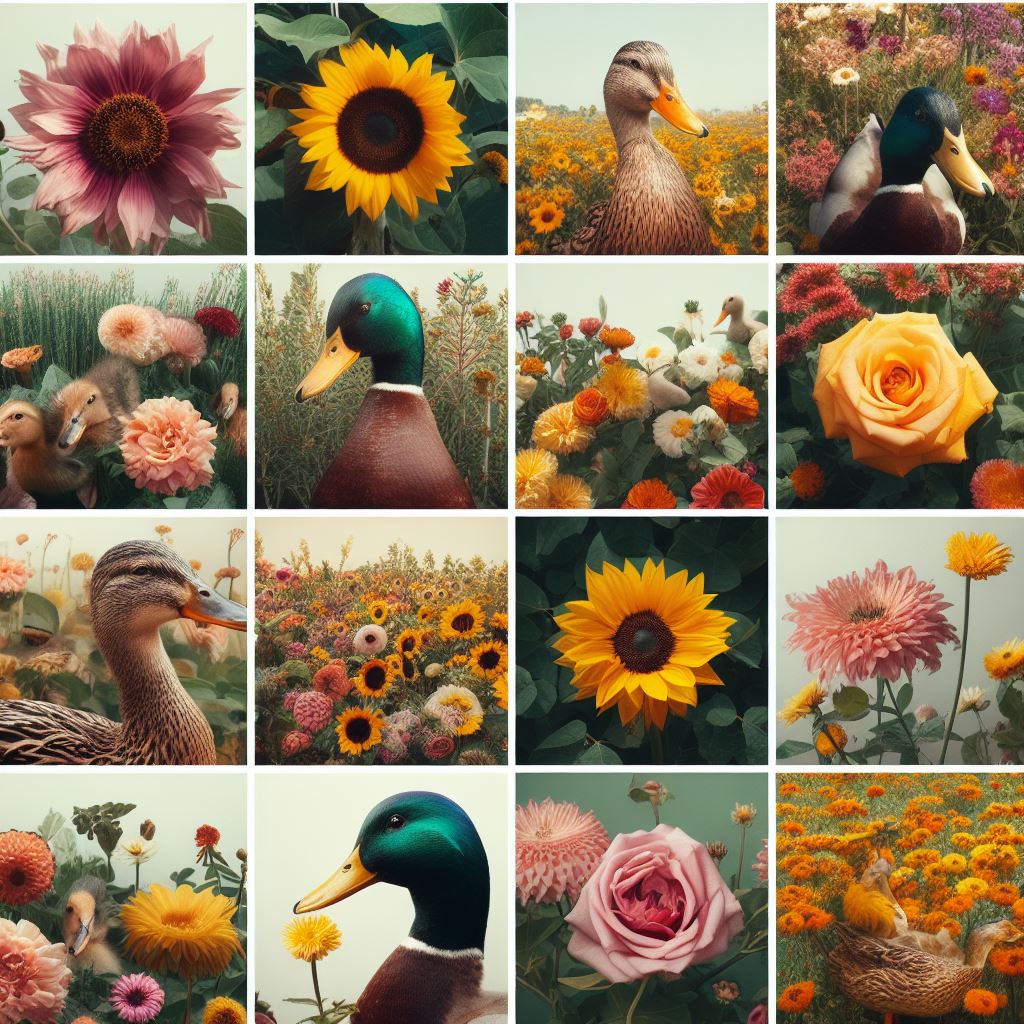 Flowers That Ducks Avoid
Flowers That Ducks Avoid
There are some flowers that ducks generally avoid, either because they are unappealing or toxic to ducks. Flowers that ducks usually stay away from include:
- Daffodils – All narcissus varieties contain toxins and alkaloids that ducks avoid.
- Tulips – Especially colorful tulips, which contain toxic glycosides.
- Foxglove – The entire foxglove plant is very poisonous to ducks.
- Hyacinths – Contain alkaloid toxins that cause vomiting if eaten.
- Buttercups – Acutely toxic to ducks and cause severe digestive upset.
As a general rule, ducks avoid bulb flowers like tulips, daffodils, hyacinths, and lilies. They also stay away from flowering plants known to be poisonous. Trust their good judgment and keep these flowers out of ducks’ reach.
Do Ducks Eat Flower Buds and Petals?
In addition to eating flower heads, ducks will also nibble on flower buds and petals when available. Flower buds contain concentrated nutrients as they prepare to bloom and they have very soft, tender textures that ducks can easily bite or tear off plants.
Once flowers fully open, ducks enjoy plucking the colorful flower petals and swallowing them whole. Roses, zinnias, marigolds, and other bright, showy flowers with large petals are especially enticing to curious ducks.
So ducks will not only eat the actual flower heads but also target buds and petals for snacks. Take this duck behavior into account when trying to protect flowers.
Do Ducks Eat Vegetable Flowers?
Ducks that frequent vegetable gardens can be a nuisance, as they will sample edible flowers growing there too. Some common vegetable flowers that ducks will eat include:
- Squash blossoms
- Pumpkin flowers
- Okra flowers
- Broccoli florets
- Cauliflower
The large, showy flowers of squash and pumpkin plants seem to attract ducks the most. But they’ll nibble their way through all sorts of veggie flowers if given the chance.
Using row covers on vegetable beds is the best way to protect edible garden flowers from duck damage. Ducks will also dig up newly planted seed beds in their constant search for seeds and bugs.
How Much Damage Can Ducks Do to Flowers?
A few ducks casually passing through a garden or yard will only cause minimal flower damage. They may take a few nibbles of tastier flowers, but won’t decimate a flower bed or garden.
However, a larger flock of ducks that takes up residence around your yard can quickly destroy flowers in their never-ending quest for fresh food. Groups of ducks may return to the same flower beds over and over, tearing plants up by their roots, trampling beds, and muddying up ponds and lawn areas as they feed.
This repetitive duck damage can leave flower beds and gardens a muddy mess, with entire plants disappearing and no chance to bloom. Perennials may fail to return if ducks eat the roots and all new growth.
So while a few duck visitors aren’t a huge concern, a constant population of ducks will definitely take its toll on any flowers they can access on a regular basis. Protect flower beds and gardens before ducks move in and get comfortable.
How to Protect Flowers from Ducks
If your yard or garden regularly attracts duck visitors, you’ll need to take proactive measures to protect flowers and plants. Here are some effective ways to deter ducks and avoid flower damage:
Use Fencing and Netting
Fencing planted areas with short, plastic garden fencing or poultry wiring can effectively keep ducks out of flower beds. For individual plants, place wire mesh cages or netting over the top. Secure the bottom edge to prevent ducks from getting underneath.
Try Scarecrow Sprinklers
These motion-activated sprinkler systems detect duck activity and shoot a quick spray of water to startle them away. Combine with flashing lights for added scare factor. Ducks quickly learn to avoid sprinklers.
Install Foil Pans
Reflective, spinning foil pans will scare off ducks from landing on ponds or lawns. The reflective surface and movement deter ducks once they associate it with being unwelcome.
Apply Repellent Sprays
There are commercial bird repellent sprays made from methyl anthranilate, a non-toxic grape extract. Apply these sprays on and around plants to deter ducks from nibbling. Reapply after rain.
Use Noisemakers
Motion-activated noisemakers, radios, and recordings of predator calls can frighten ducks away from gardens. Just be sure to shut off noise at night to prevent disturbing neighbors.
Train Your Dog
Some working breeds of dogs can be trained to chase ducks from your property. Supervise your dog closely so they don’t actually harm ducks and stop unwanted chasing on command.
Frequently Asked Questions
Do ducks eat flower bulbs and tubers?
Most flower bulbs and tubers contain toxins that deter ducks from eating them. However, ducks may still dig up freshly planted bulbs if they smell tasty. Wait until after ducks leave in fall to plant spring bulbs in areas they frequent.
Will ducks eat vegetable seedlings?
Yes, ducks love newly sprouted seeds and seedlings of all kinds. Use row covers over seeded beds and wire cages over seedlings until they are established and mature enough to withstand some nibbling.
Should I feed ducks that visit my yard?
You can offer a limited amount of duck feed, but feeding them regularly will encourage larger groups to move in and stay. This leads to more flower damage, messy droppings, and contaminated ponds from duck use. Limit feeding and chase ducks away to discourage permanent residence.
Are flowering water plants safe from ducks?
Floating and immersed water flowers like lotuses, water lilies, and hyacinths are actually protected from duck damage since the flowers remain at or below the water surface. However, ducks will still eat water plant leaves and access seeds and tubers in shallow water.
Conclusion
Ducks are natural foragers and will sample many kinds of flowers as they explore yards and gardens looking for different foods. While ducks enjoy eating some popular flowers like roses, zinnias, and marigolds, they do avoid potentially toxic flowers like daffodils and tulips.
Minimal flower damage may occur if a few ducks are passing through, but permanent duck residents can quickly destroy gardens and flower beds in their constant search for fresh plant material. Use fencing, netting, scare devices, and repellents to protect flower beds and direct ducks away from taking up permanent residence in your yard.
Welcome. I’m Adreena Shanum, the proud owner of this website, and I am incredibly passionate about animals, especially poultry. I founded adreenapets.com as a labor of love, stemming from my desire to share my knowledge and experiences with poultry enthusiasts worldwide.


